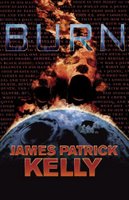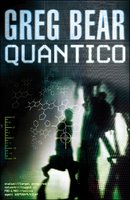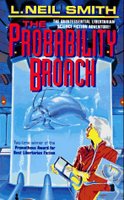Book Review: BURN

Imagine someone buying an entire planet, christening it “Walden,” and planting on it a colony of the last “true humans,” all of whom reject advanced technology and pursue lives dedicated to Thoreau’s philosophy of simplicity and the primacy of nature. That’s the basis of James Patrick Kelly’s thoughtful science fiction novella Burn, nominated this year for a Hugo Award.
Kelly’s story centers on Prosper “Spur” Leung, a fruit farmer from the Walden community of Littleton. Spur turns firefighter when “pukpuks,” original pre-utopia settlers displaced by the experiment, begin setting forest fires to resist the Transcendent State’s accelerated forestation of all land unused by the new agrarian settlers. The pukpuks, you see, refuse to be forced from their homeland for the sake of some “well-meaning” test in social planning.
Burn asks a lot of interesting questions. But Kelly has wisely decided to answer few of them. Sometimes, just posing a question and prompting discussion is satisfying enough. This is an intricately woven story with plenty of intriguing characters. Burn accomplishes one hell of a lot in just 39,000 words. And if you’re a devotee of Thoreau or at all interested in notions of experimental utopian communities, you’ll enjoy Kelly’s book.





























